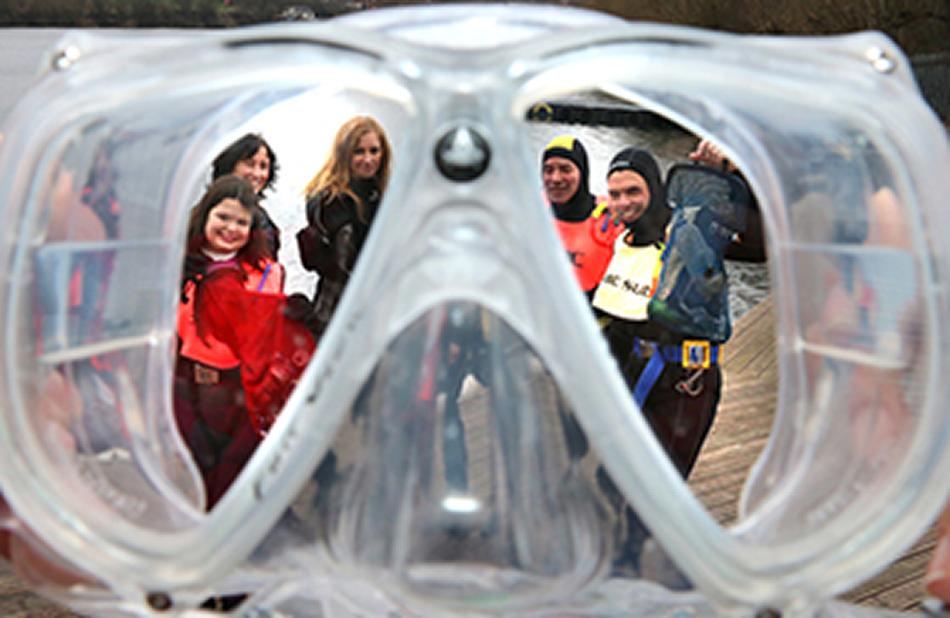
Photo credit: © Genine Keogh/Snorkel Wild
Andy Torbet presents an overview of Marine Protected Areas (MPA), and how snorkellers can contribute to marine conservation.
Although I have discussed boat, kayak, canoe, raft and even helicopter snorkelling in this column, the vast majority of our snorkel-based diving is conducted from the shore.
With 372 Marine Protected Areas (MPA) covering 38% of the UK’s territorial waters, chances are we will all snorkel in one at some point. While MPAs cover many offshore sectors, they also cover large portions of our shoreline, often in areas with great diving. England, for example has around half of its coastline designated as an MPA of some sort. If you’d like to see just how much of the UK is covered by MPAs, take a look at the interactive map on the Joint Nature Conservation Committee website.
The designation, differences, practical effectiveness and current of policing of MPAs is a topic too great to cover in detail in this column, but here’s a summary:
‘Marine Protected Area’ is a blanket term covering any marine area, offshore or inshore, which has some official designation and protection. It can exist to protect wildlife, flora, habitat or even historical features. There are currently eight different categories of MPA within the UK, including Sites of Special Scientific Interest (a term shared with the terrestrial world), Marine Nature Reserves and the new Highly Protected Marine area (HPMA). The different designations dictate what can and cannot be carried out in the area.
There are no specific restrictions on snorkellers, but sensible precautions and respect should be extended, even if we’re not in a MPA
The good news for us is that even in HPMAs, as its name suggests the most highly protected area, non-destructive human activities such as kayaking, swimming and, crucially, diving and snorkelling are still allowed. There are now three of these new HPMAs, but since two are offshore the only one relevant to snorkellers is Allonby Bay in Cumbria. It’s worth noting that, to avoid damage to vulnerable habitats, dropping anchors or shot-lines is banned in a few MPA places like Studland Bay and Lundy. So, if you are snorkelling from your club RIB, be aware of what the local restrictions are.
What can and should we do as snorkellers? There are no specific restrictions on us, but sensible precautions and respect should be extended, even if we’re not in a MPA. One would hope, as snorkellers, we are all fascinated by, and motivated to protect, the marine environment. So, any support we can provide will help areas recover from damaging activity and only benefit the resident wildlife.
Although care should be taken when entering and exiting the water to minimise disturbance, the most productive thing is to monitor and report what you see through the Seasearch scheme. This citizen-science project, set up by the Marine Conservation Society, has provided vital data over the years which has then been used to support the establishment of, or critique the failings of our MPAs.
To improve marine protection, those at the political sharp end need boots on the ground, or fins in the water, to gather data to solidify the case for expansion, improvement and tightening of the current legislation. It’s also fun, gives focus to your dive and will vastly improve your marine life knowledge. More information is available through the SeaSearch website www.seasearch.org.uk
The sheer volume of marine protection around the UK is encouraging, as is the aspiration to protect more. However, the difficulty in monitoring and policing the underwater world limits how effective this protection can be. Ultimately, the only way to observe what has been going beneath the waves is to get underwater.
Much like the problem with ocean plastic, the diving community was years ahead of the country, because we were seeing what they could not. If huge tracts of forest were being ploughed up overnight, or majestic mounts were being open-cast mined, everyone would be able to witness the situation for themselves. The submerged world is unseen to most, so it falls on those who do choose to explore this inner space to protect a world that cannot protect itself.
Article 'This nation’s saving grace' by Andy Torbet first published in SCUBA magazine, Issue 145 May 2024. Images in this online version have been substituted from the original images in SCUBA magazine due to usage rights.

 Author: Andy Torbet | Posted 23 May 2024
Author: Andy Torbet | Posted 23 May 2024



